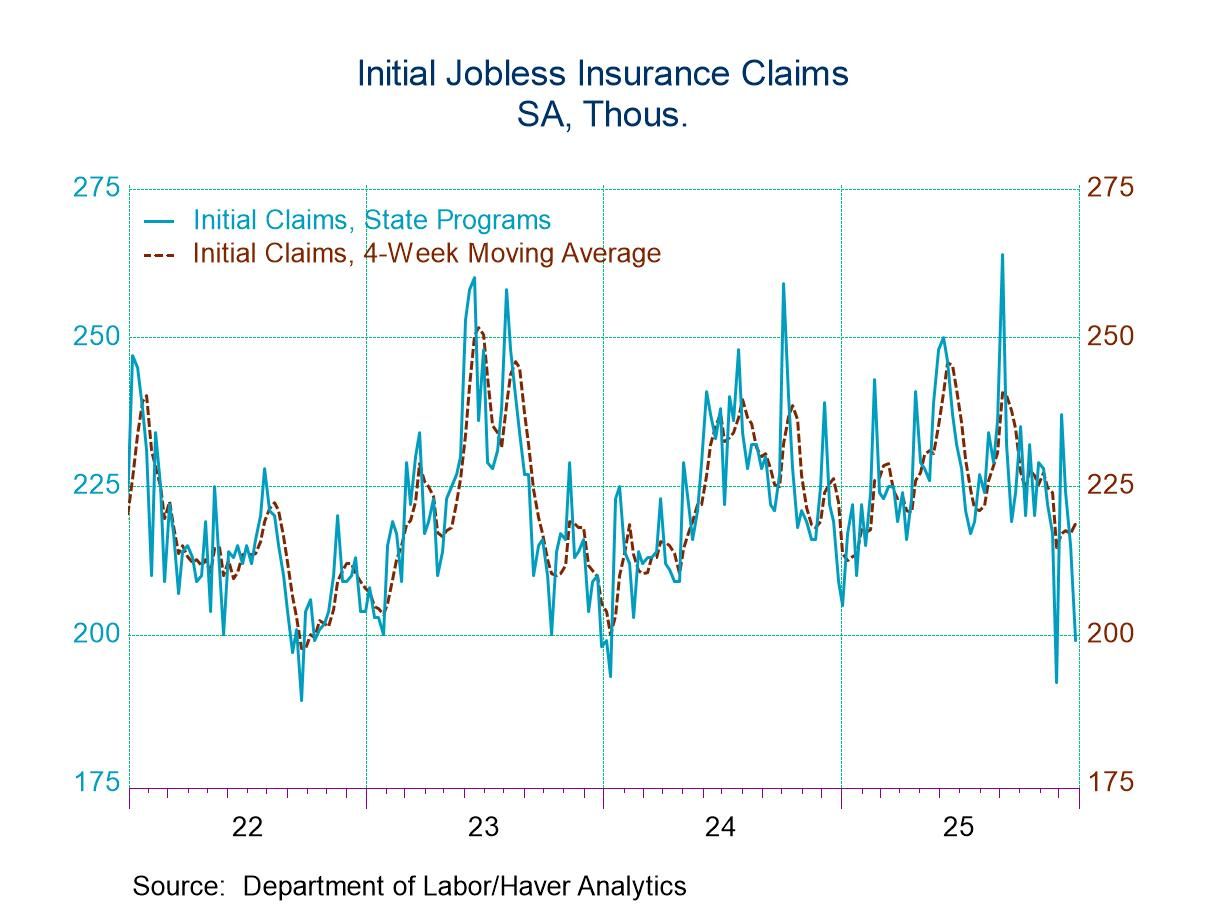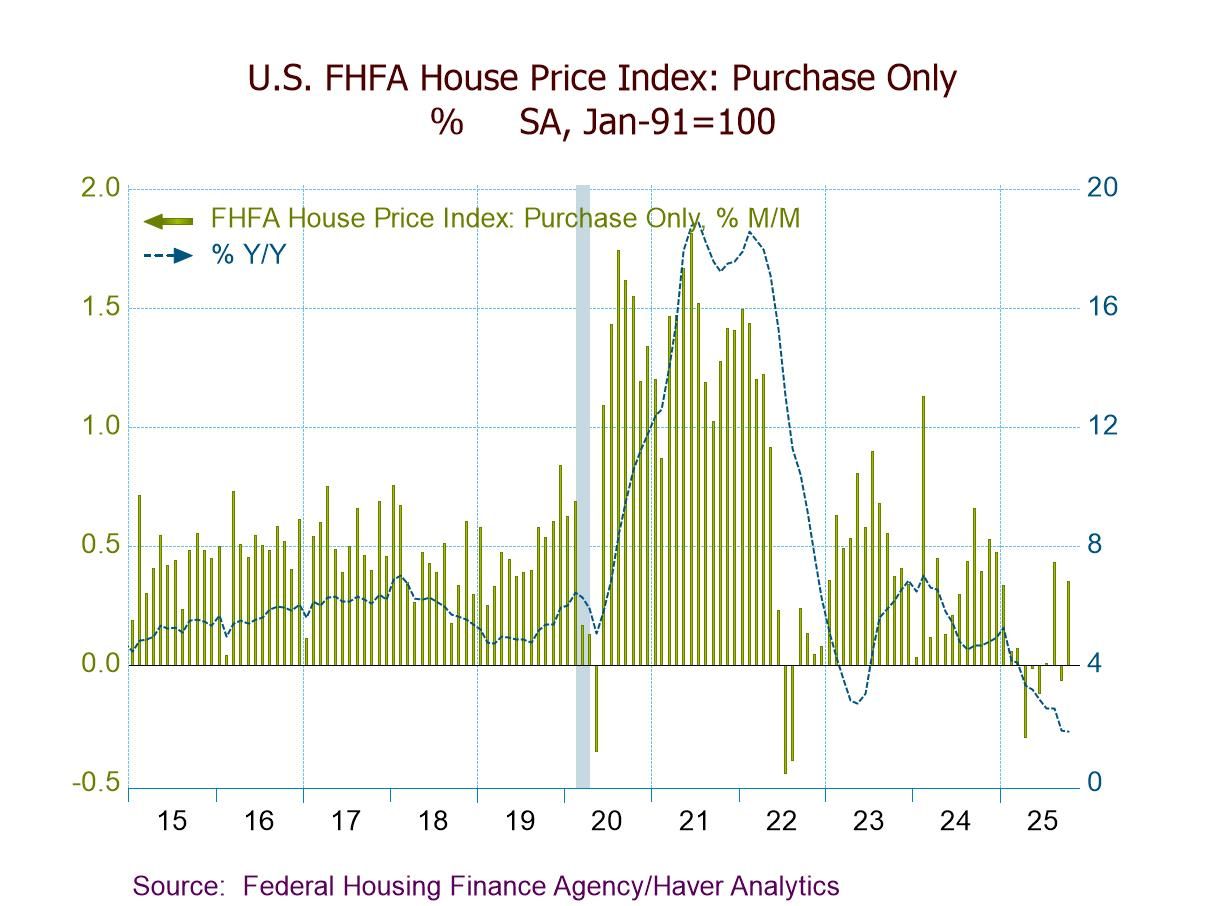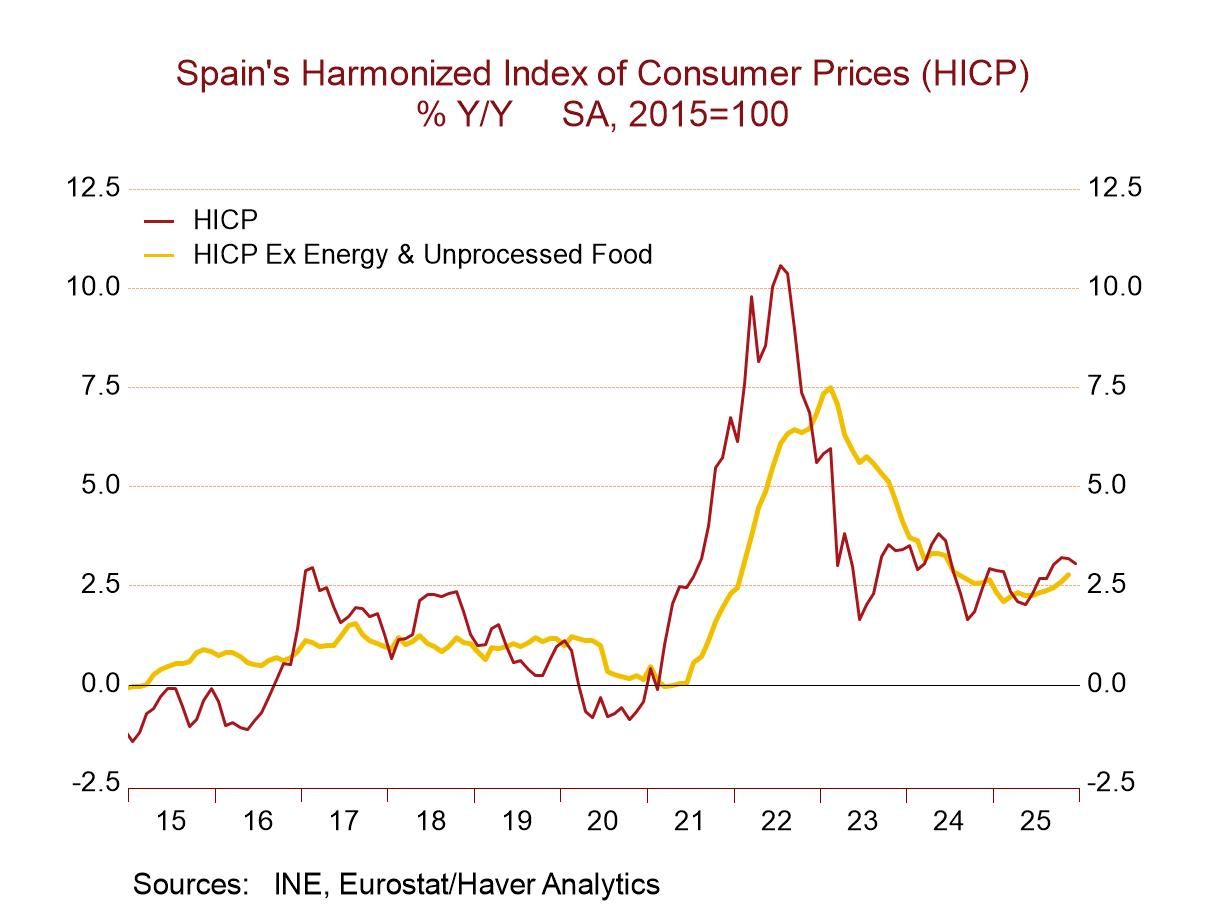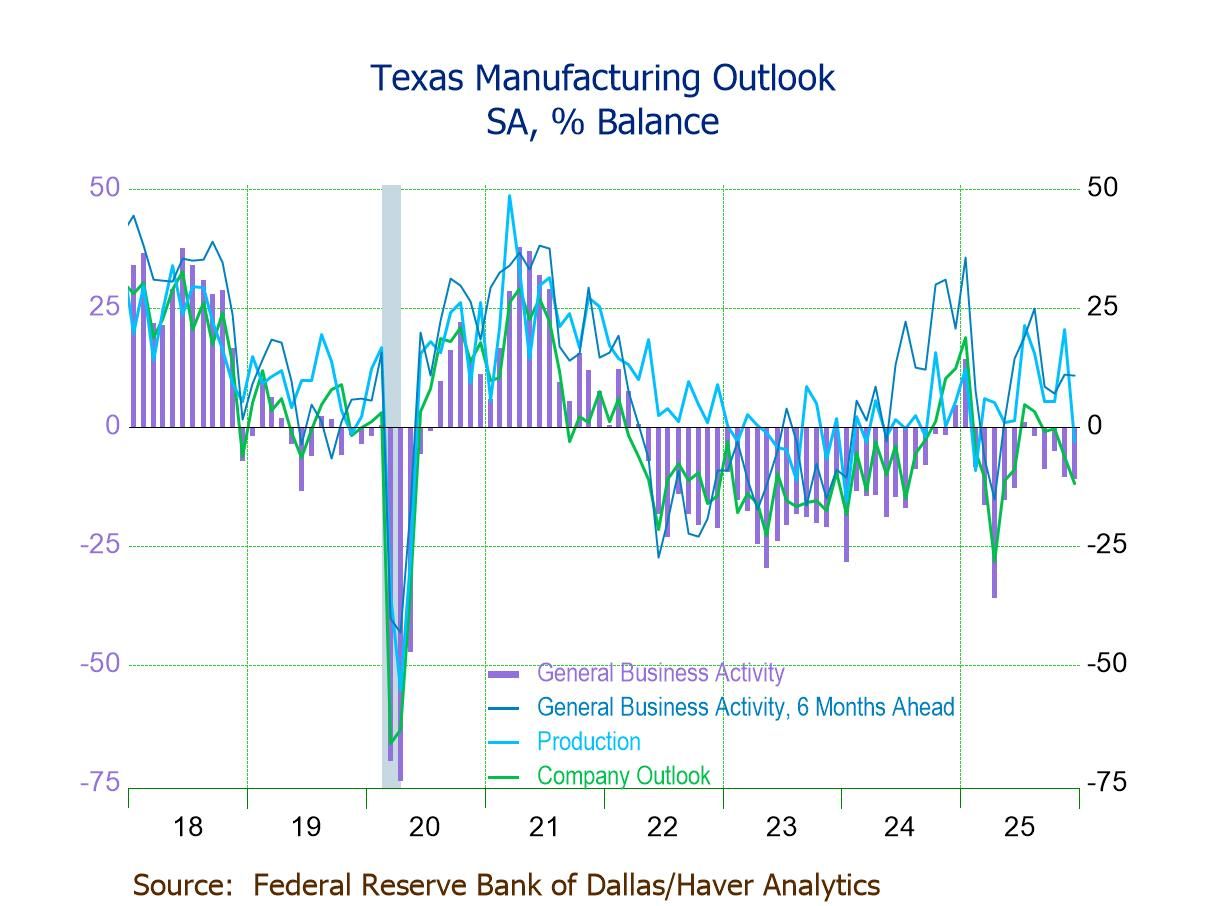 Global| Dec 15 2003
Global| Dec 15 2003Empire State Index Firm
by:Tom Moeller
|in:Economy in Brief
Summary
The Empire State Index of General Business Conditions for December remained at a firm reading of 37.37, down just slightly from the record 40.14 in November. Consensus expectations had been for a larger decline to 33.0. The new orders [...]
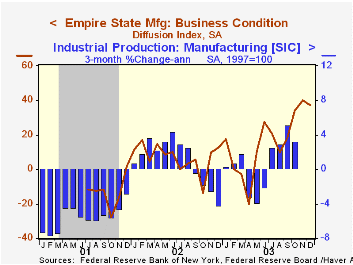
The Empire State Index of General Business Conditions for December remained at a firm reading of 37.37, down just slightly from the record 40.14 in November. Consensus expectations had been for a larger decline to 33.0.
The new orders index at 31.20 fell 9 points but still indicated expansion. Shipments improved three points to 39.32 to a new record level. The employment index (11.54) rose to a record high.
The index of prices paid rose 3 points to 12.50 and continued the firming trend of the last six months.
The survey includes measures of expectations for business conditions six months ahead. The December index was about stable at the series' high. Expectations for capital expenditures surged 12 points to a new record level.
The Empire State Manufacturing Survey is a monthly survey of manufacturers in New York State conducted by the Federal Reserve Bank of New York. Participants from across the state in a variety of industries respond to a questionnaire and report the change in a variety of indicators from the previous month. Respondents also state the likely direction of these same indicators six months ahead. April 2002 is the first report, although survey data date back to July 2001.
Like the Philadelphia Fed Index of General Business Conditions, the Empire State Business Conditions Index reflects answers to an independent survey question, not the components.
For more on the Empire State Manufacturing Survey, including methodologies and the latest report, click here.
"Taking the Measure of Manufacturing" from the Federal Reserve Bank of Philadelphia can be found here.
| Empire State Manufacturing Survey | Dec | Nov | Y/Y (12/02) | 2003 | 2002 | 2001 |
|---|---|---|---|---|---|---|
| General Business Conditions (diffusion index) | 37.37 | 40.14 | 12.69 | 16.15 | 7.10 | -13.02 |
by Tom Moeller December 15, 2003
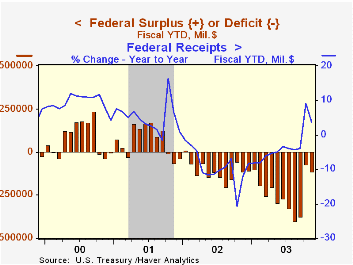
The U.S. Government budget deficit shrank to $43.0B in November. That was less than the $58.9B deficit in November of last year and left the deficit so far this fiscal year about even with FY 2003.
Net receipts rose 3.9% versus in the first two months of this fiscal year versus FY03. All of the gain reflected higher contributions for social insurance, higher estate taxes, higher customs duties and higher miscellaneous taxes. Individual income tax receipts fell 5.5% y/y but corporate taxes were up.
Federal net expenditures rose 2.5% versus the first two months of last fiscal year. The rate of gain eased from last month due to an easing in defense expenditures. Medicare outlays also eased m/m. Spending on health programs rose 5.3% and spending on education surged 10.0%. Interest expense fell 2.6% y/y.
"Global Factors in Budget Deficits" are discussed in this paper from the Federal Reserve Bank of St. Louis.
| US Government Finance | Nov | Oct | Nov '02 | FY2003 | FY2002 | FY2001 |
|---|---|---|---|---|---|---|
| Budget Balance | $-43.0B | $-69.5B | $-58.9B | $-374.2B | $-157.8B | $127.3B |
| Revenues | $118.2B | $135.8B | -1.5% | -3.8% | -6.9% | -1.7% |
| Outlays | $161.2B | $205.4B | -9.9% | 7.2% | 7.9% | 4.2% |
Tom Moeller
AuthorMore in Author Profile »Prior to joining Haver Analytics in 2000, Mr. Moeller worked as the Economist at Chancellor Capital Management from 1985 to 1999. There, he developed comprehensive economic forecasts and interpreted economic data for equity and fixed income portfolio managers. Also at Chancellor, Mr. Moeller worked as an equity analyst and was responsible for researching and rating companies in the economically sensitive automobile and housing industries for investment in Chancellor’s equity portfolio. Prior to joining Chancellor, Mr. Moeller was an Economist at Citibank from 1979 to 1984. He also analyzed pricing behavior in the metals industry for the Council on Wage and Price Stability in Washington, D.C. In 1999, Mr. Moeller received the award for most accurate forecast from the Forecasters' Club of New York. From 1990 to 1992 he was President of the New York Association for Business Economists. Mr. Moeller earned an M.B.A. in Finance from Fordham University, where he graduated in 1987. He holds a Bachelor of Arts in Economics from George Washington University.



